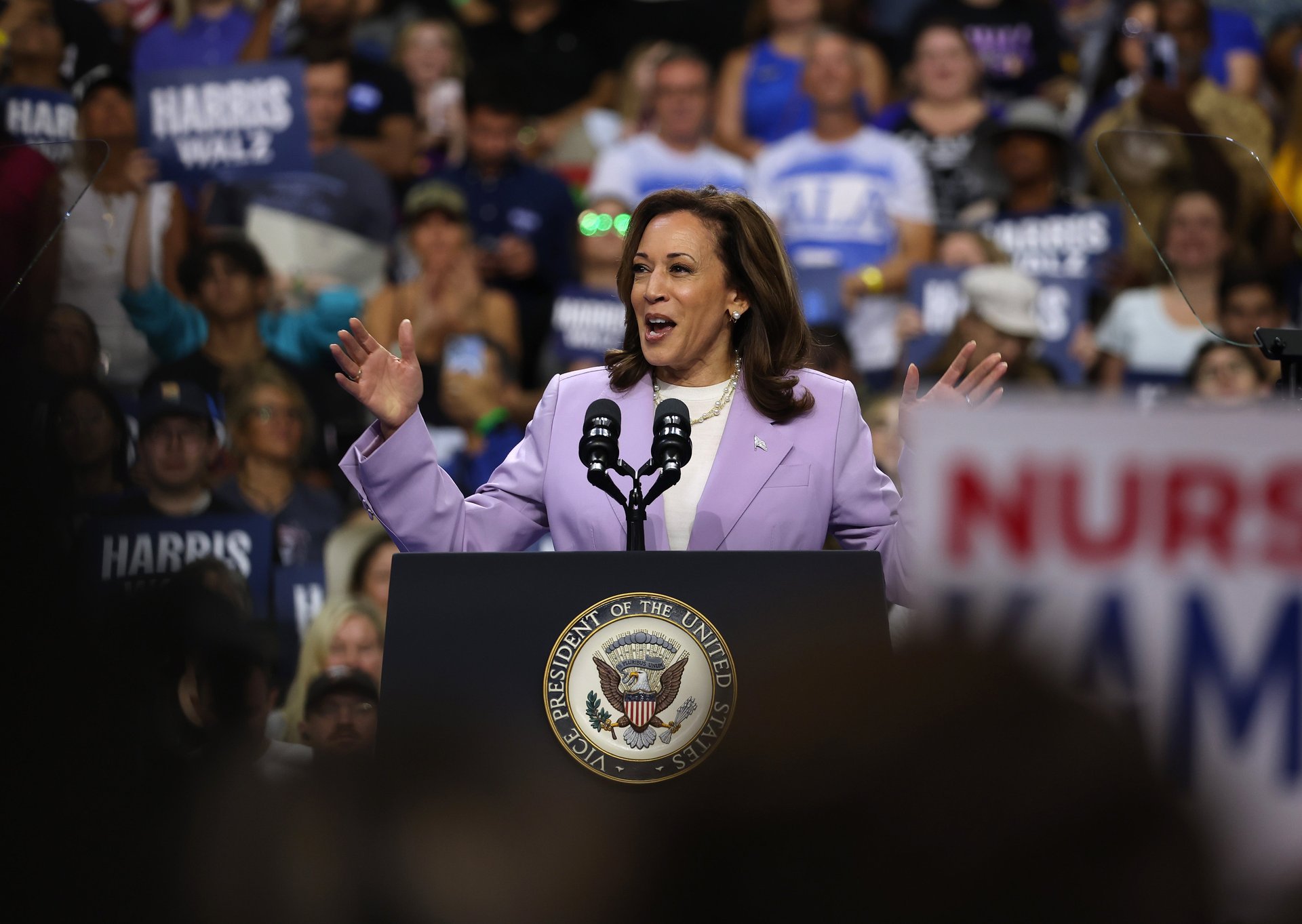Kamala Harris and Donald Trump both want to end taxes on tips. Here's what that could look like
Any move to exempt tips from federal income taxes would add over $100 billion to the federal deficit

Vice President and Democratic presidential nominee Kamala Harris has now pledged to eliminate taxes on tips for service and hospitality workers, matching a similar pledge from rival nominee and former president, Donald Trump.
Suggested Reading
Both candidates made their pledges while talking to voters in Nevada, a key swing state that relies heavily on its hospitality industry. As of June, about a quarter of the state’s workforce is employed in that sector.
Related Content
“It is my promise to everyone here, when I am president, we will continue to fight for working families, including to raise the minimum wage and eliminate taxes on tips for service and hospitality workers,” Harris said Saturday during a rally at the University of Nevada in Las Vegas.
Her pledge instantly drew accusations that she was copying Trump, who has touted his own plans for eliminating taxes on tips for months. In June, while speaking to his own crowd of supporters in Nevada, Trump promised to get rid of the tax “right away, first thing in office.”
Just days later, Texas Sen. Ted Cruz and Florida Rep. Byron Donalds introduced the “No Tax On Tips Act” into their respective chambers of Congress, which would exempt tips from the federal income tax.
Although eliminating taxes from tips sounds good at the pulpit, it doesn’t amount to much in practice. For starters, many workers receive tips in cash, much of which is never reported to the Internal Revenue Service.
As of last year, just about 4 million workers were in tipped occupations. That’s about 2.5% of all employed individuals in the U.S., according to the Budget Lab at Yale University.
And many of those workers already pay zero federal income tax. Thirty seven percent of tipped workers paid no federal income tax in 2022 — before accounting for tax credits — compared to 16% of workers in non-tipping jobs.
That’s because their pay is already lower than average; The median weekly wage for tipped workers was $538 in 2023, almost half the $1,000 median weekly wage for people who worked jobs without tips. The workers more likely to benefit would be those few working at high-end restaurants or other establishments who interact with wealthier clients more likely to spend more and — sometimes — tip more.
A key difference
Nevada’s 60,000-member strong Culinary Union slammed Trump’s proposal as a “wild campaign promise” from a convicted felon, although it has supported a federal ban on sub-minimum wages and taxes on tip for years. Instead, the union also backed Harris, who would seek to both do away with taxes on tips and raise the minimum wage, which hasn’t been increased in more than two decades.
Although most states pay above the federal $2.13 per hour minimum wage for tipped workers, at least 15 states and Puerto Rico have stuck with that minimum. Other states, including Wisconsin, Oklahoma, and West Virginia, have minimum tipped wages below $3 an hour, according to the Department of Labor. The federal minimum wage — including both cash and tips — is $7.25 an hour.
“It is outrageous that over a million workers in this country are not guaranteed a fair minimum wage in 2024,” the Culinary union said in a statement Saturday. “Employers across the nation need to take responsibility for paying a real minimum wage and congress must ensure it.”
Neither the Trump or Harris campaign have released their official tax-free tips policy proposal. Both candidates have said they would work with Congress to pass legislation favorable to their pledges, The Washington Post reported.
The Committee for a Responsible Federal Budget(CRFB) estimates that potential proposals from the candidates would add more than $100 billion to the federal deficit over 10 years.
The nonpartisan budget watchdog assumes that Trump’s plan would make tips exempt from federal income and payroll taxes. On a static basis, that could add as low as $150 billion or as much as $250 billion to the federal deficit. If patrons became more generous and tipped better, the impact to the deficit would increase.
The CRFB found that raising the federal minimum wage to $15 an hour would add about $50 billion to the deficit over the next 10 years. Combined with making tips exempt from federal income and payroll tax, between $100 billion and $200 billion could be added to the deficit. That low-end estimate assumes that high-earners are phased out of the exemption.
